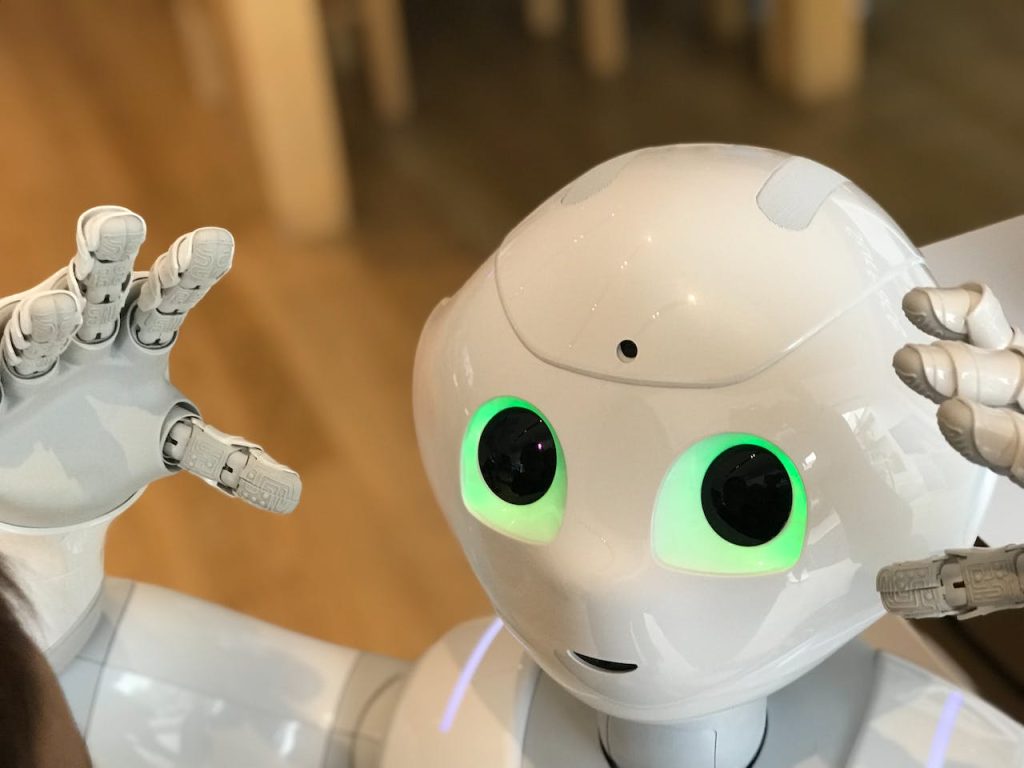The emergence of Artificial Intelligence (AI) is reshaping the world as we know it.

From self-driving cars to chatbots and virtual assistants, AI is transforming the way we live and work. In particular, the impact of AI on leadership styles is set to be significant. With AI changing the business landscape rapidly, CEOs and entrepreneurs need to adapt before they’re left behind. In this blog, we’ll explore how AI is redefining leadership and what this means for the workplace of the future.
It’s a Brave New World
Efficiency and Productivity will increase: One of the ways AI will affect leadership styles is through increased efficiency and productivity. AI can help automate processes and tasks that would normally take significant time and resources. Instead, AI can perform these tasks efficiently and effectively, freeing up time for leaders to focus on more strategic initiatives. The productivity gains from AI can help businesses thrive in competitive marketplaces.
The challenge will be for leaders to embrace the change and actively leverage the opportunity. Sadly, many will choose to stay the course, ride out their sense of time left to retire/liquidate, and, in the end, never catch the wave. The same phenomenon happened when desktop computing entered the world. There were many key leaders who never bothered to learn how to navigate the PC/laptop world. It’s happened before, it will happen now.
Decision Making will be more informed: Leaders have to make a lot of decisions, and not all of them are easy. With AI, decision-making can be more informed and data-driven. Machine learning algorithms can analyze vast amounts of data and offer insights that humans alone cannot. With AI, leaders can make decisions with a higher level of accuracy, reducing the risk of costly mistakes.
When the need for a decision arises, leaders often search for conclusive information so as to make the ‘best possible decision.’ As admirable as that may be, great opportunities get missed because leaders took too long to gather the “100%” answer rather than act on the 80% that showed them the go or no-go conclusion. Often the 80% of information is already easily available. It’s digging for the remaining 20% that takes too long. With AI, the speed of collection of information will be enhanced, thus allowing the return to 100% content before making decisions.
Diversity and Inclusion will be a priority: AI can help businesses tackle diversity and inclusion challenges. With AI, objective data can be used to help eliminate bias in the recruitment, promotion, and assignment processes. When used effectively, AI can help ensure that diverse perspectives are represented in key leadership positions. The result is a more inclusive workplace culture that values and leverages diverse perspectives.
DEI continues to be a challenge for leaders. The environment around DEI is too complex for most organizations to handle. Answers that seem logical often prove to be ineffective once explained to the team. The psycho-emotional aspects of finding the right DEI solutions evade most leaders. AI can become a tool to gather far greater perspectives from which leaders can shape DEI answers for future work teams.
Leadership will evolve to include Machine Learning and AI skills: With AI becoming more critical for businesses, the skill set of leaders will also change. Leaders will need to become comfortable working with machine learning algorithms and AI applications. This involves a more significant emphasis on technical skills like coding, data analysis, and algorithm design. The benefit is that leaders with these skills will be better equipped to manage AI initiatives, improving their effectiveness.
On one hand, it’s hard to imagine the CEO of a Fortune 500 company actually coding a query for AI. This is not what I mean here. The evolution of machine learning will challenge leaders to ask better questions so that the AI tools can do more.
The Importance of Emotional Intelligence will increase: As AI takes on more tasks, leaders will have to leverage their emotional intelligence (EQ) to succeed. Humans are better suited for tasks like leading teams, inspiring people, creating culture, and managing change. While AI can help with routine tasks, it will be up to leaders to motivate and engage their workforce in a world where AI is increasingly present. As AI becomes more prevalent in the workplace, EQ will become a critical leadership trait.
Leadership will forever remain a contact sport. By that, I mean leaders will still need to connect with their teams. The scope and nature of the discussions may change as AI emerges into the work, but the need for connection, relatability, and relevance with the people will never change.
Conclusion
AI is already transforming the way we live and work, and its impact on leadership styles is no exception. As AI moves beyond automating routine tasks and into making strategic decisions, leaders need to adapt.
By embracing AI and building the skills required to manage it, businesses can thrive in a future where AI plays a critical role.
With the right approach and mindset, leaders can leverage AI to enable a more inclusive, productive, and efficient workplace culture. The future of leadership is here; are you ready to embrace it?
Guest post courtesy of Acquira's Lead Integrator, Doug Thorpe.
Acquira specializes in seamless business succession and acquisition. We guide entrepreneurs in acquiring businesses and investing in their growth and success. Our focus is on creating a lasting, positive impact for owners, employees, and the community through each transition.



